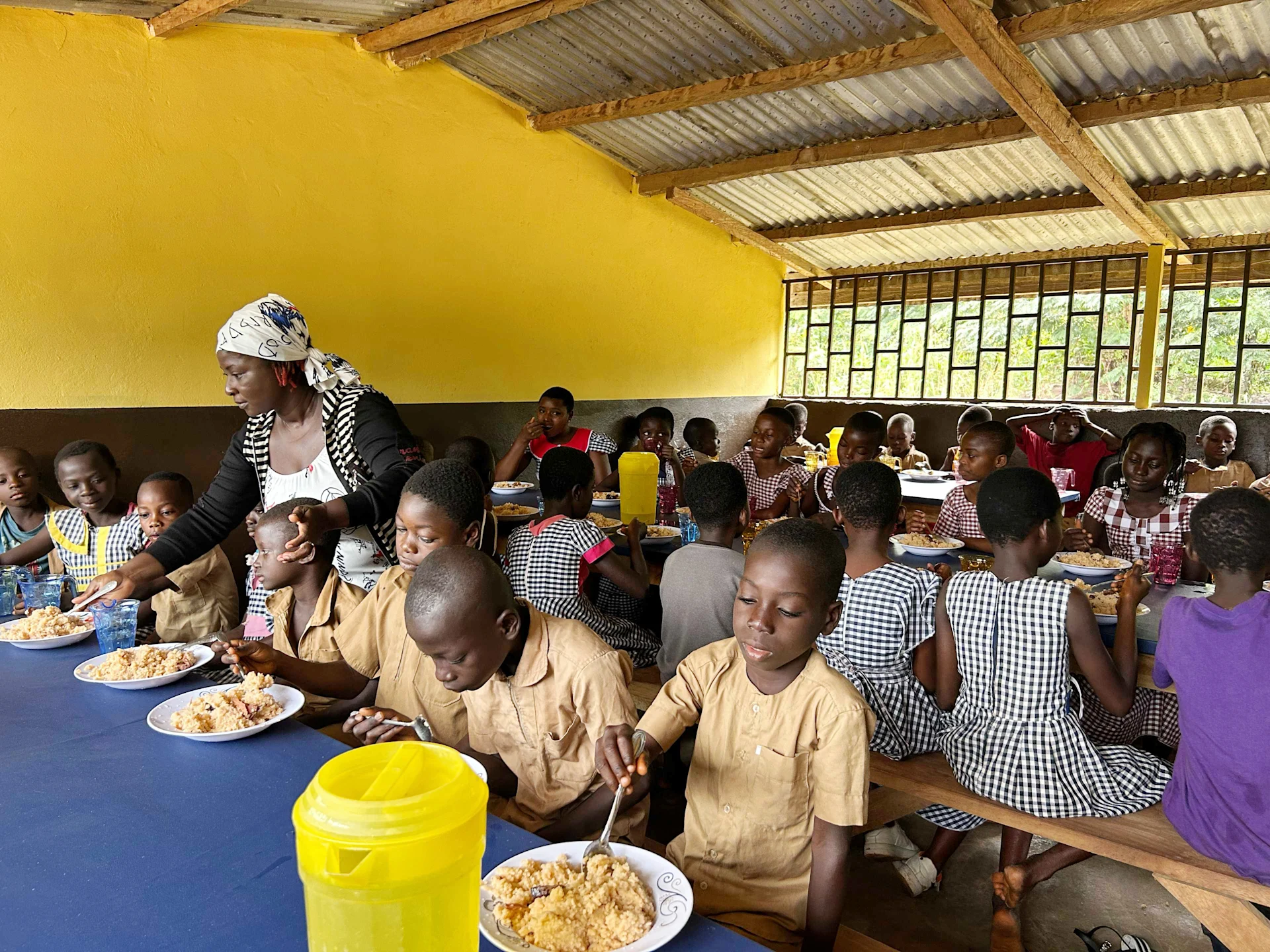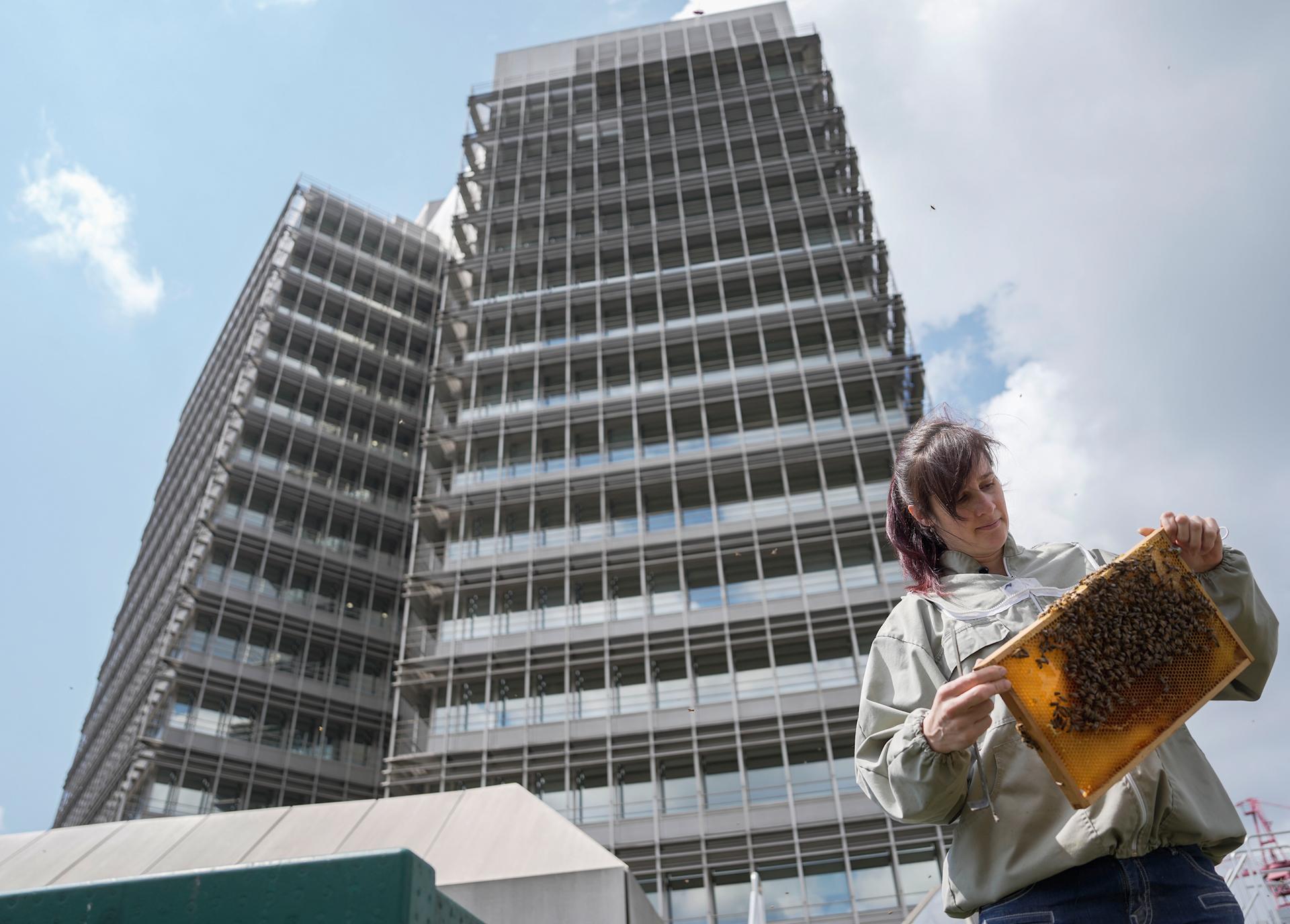
Sustainability
Do something good for CHF 0.50
If you buy a bar of "Côte d'Ivoire" chocolate, you will be contributing to a success story in West Africa.
navigation

Biodiversity
Mirjam Lendenmann works in Guggi, the Migros employee restaurant in Zurich. She indulges in her beekeeping hobby on the roof. A visit.
Yes, it is indeed possible, as Mirjam Lendenmann proves. “Nearly seven years ago, I asked my boss if I could place beehives on the roof. He said yes. My bees have been coming here ever since, making the finest Zurich city honey for the Guggi employee restaurant on Limmatplatz.”
“Yes, working with urban bees is different than working with rural bees”, the expert tells us. “My Zurich girls have the most energy. And they have the most food in their mouths. Those in the country take a leisure approach to life.”
“In fact, it’s a very high level of biodiversity. The bees in the city are now nearly better off than those in the countryside. There is a lot less pesticide and they find a lot more nectar. Thank God that the exhaust fumes don’t affect them at all”, says Mirjam. Food sources for urban bees include blossoming flowerbeds and balcony plants as well as lime and chestnut trees.
“Once the rapeseed has been harvested, the farmland turns into a green desert. Everything is wonderfully green, but nothing blooms until the sunflowers are ready”, Mirjam explains. That is a major problem for wild bees. “A large number of them form a relationship with a specific plant and collect pollen and nectar only from that plant. If the relevant plant increasingly disappears, so does the specific wild bee.” Wild bees nourish themselves with pollen and nectar, but do not produce honey.
If the population of bees and other insects steadily dwindles, flowers are in turn less pollinated. This results in massive losses in food production. In other words, this puts less food on our tables. “I find it the rate of decline in biodiversity very concerning indeed”, says Mirjam. “When you are sitting outside in the evening, there are not very many insects flying around. We consider that a positive thing, but for us as humans, it's still going to be a colossal problem.”
“We can all play a significant role in saving biodiversity. For example, by stopping the use of pesticides and also taking this into account when shopping, and by buying organic products. And we can buy regional honey”, says Mirjam. In addition, anyone with a garden should not mow the lawn entirely, leaving islands of flowers for the bees and other insects.
Discover exciting stories about all aspects of Migros, our commitment and the people behind it. We also provide practical advice for everyday life.